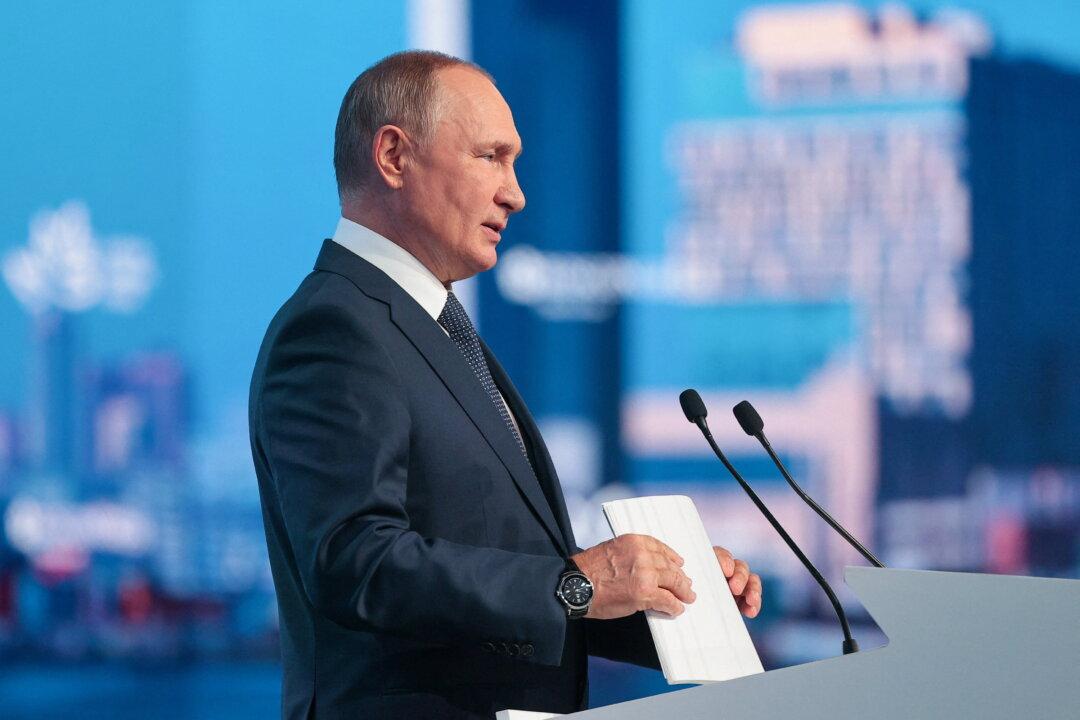European natural gas prices spiked as Russia amped up its war rhetoric with President Vladimir Putin announcing a “partial mobilization” of the military beginning Wednesday amid accusations of Western “nuclear blackmail” and setbacks for Russian forces in northeast Ukraine.
Benchmark Dutch TTF gas futures are trading at €206.935, which have risen more than 6.5 percent from opening the day at €203 per megawatt-hour (MWh), as of 7:09 a.m. EDT. Countries in the region are scrambling to ensure supply as the winter season looms, with gas shortages and prohibitively high energy prices crippling local businesses and depleting household incomes.





